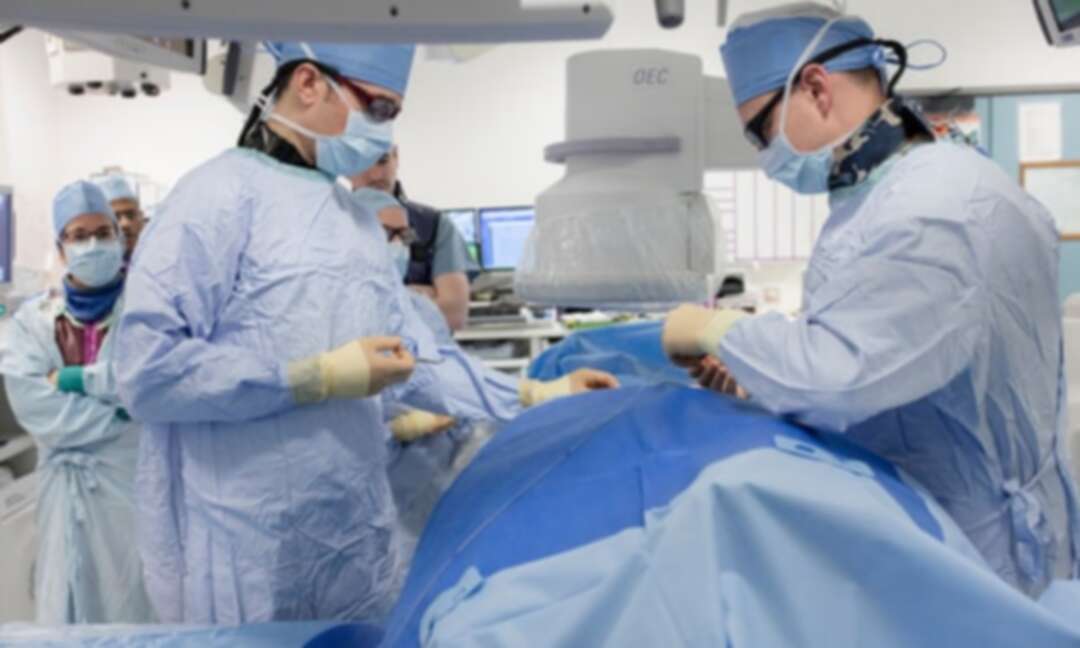-
NHS chiefs fear collision course with ministers over Covid backlog

Hospital bosses warn rescheduling cancelled surgery and tests due to pandemic will take years
Hospital bosses are bracing themselves for a clash with ministers over how quickly they can clear the backlog of NHS care that built up during the pandemic.
They are warning that it will take “years” to treat all those whose care was cancelled because Covid disrupted so many hospital services, particularly surgery and diagnostic tests.
Staff shortages, exhaustion among frontline personnel after tackling the pandemic and their need to have a break mean that progress will be slower than the government expects, NHS trust chiefs say.
“We can’t say with certainty how long it will take to tackle the backlog of planned operations because we don’t really know how big that backlog will end up being,” said Chris Hopson, the chief executive of NHS Providers.
“The NHS will obviously go as fast as it can, as we always do. But it’s already apparent that clearing the entire backlog will take years rather than months.”.
Over the last year, hundreds of thousands of people in England could not have an operation for cancer, heart disease or to have a new joint fitted or have a CT or MRI scan. One acute trust boss, who did not want to be named, said: “I think it will take many years. How long? Who knows?”
He added that hospitals are unlikely to be able to do more than slow the increase in size of the waiting list for care, which last week hit a record high of 4.59 million people.
Hopson warned that the situation would get worse before it got better. “It’s a real worry that, as a result of the pandemic, waiting lists have grown and will continue to grow for some time yet.”
Trusts also fear coming under political pressure to focus on the spiralling number of people who have already waited more than a year for a procedure. The total number of such cases shot up from just 1,613 in February 2020 to 304,044 by January this year, the latest official figures show.
“There will inevitably be pressure to prioritise those who have waited more than a year as the size of increase here is getting the most media and political attention,” added Hopson. MPs have already begun quizzing NHS England boss Sir Simon Stevens about when it will restart normal care.
However, hospitals need to be left to decide which patients are the most pressing priority and these will include those whose “priority two” operation – surgery which should be done within 28 days or delay could endanger health – was cancelled. “Sophisticated prioritisation” by doctors is better than “a simplistic approach that only focuses on those who have waited longest”, Hopson stressed.
Another trust chief executive, who also asked to remain anonymous, voiced unease that long delays could threaten the high esteem in which the public holds the NHS. “I’m concerned that public tolerance of the NHS is probably going to change as we come out of lockdown and access to appointments and services becomes more constrained.
“So there is a risk that the political imperative to restore at pace, to meet the demands of public opinion, comes into conflict with just how complex it will be for our staff to decompress,” they said.
The Department of Health and Social Care has been approached for comment.
source: Denis Campbell
Levant
You May Also Like
Popular Posts
Caricature
BENEFIT Sponsors BuildHer...
- April 23, 2025
BENEFIT, the Kingdom’s innovator and leading company in Fintech and electronic financial transactions service, has sponsored the BuildHer CityHack 2025 Hackathon, a two-day event spearheaded by the College of Engineering and Technology at the Royal University for Women (RUW).
Aimed at secondary school students, the event brought together a distinguished group of academic professionals and technology experts to mentor and inspire young participants.
More than 100 high school students from across the Kingdom of Bahrain took part in the hackathon, which featured an intensive programme of training workshops and hands-on sessions. These activities were tailored to enhance participants’ critical thinking, collaborative problem-solving, and team-building capabilities, while also encouraging the development of practical and sustainable solutions to contemporary challenges using modern technological tools.
BENEFIT’s Chief Executive Mr. Abdulwahed AlJanahi, commented: “Our support for this educational hackathon reflects our long-term strategic vision to nurture the talents of emerging national youth and empower the next generation of accomplished female leaders in technology. By fostering creativity and innovation, we aim to contribute meaningfully to Bahrain’s comprehensive development goals and align with the aspirations outlined in the Kingdom’s Vision 2030—an ambition in which BENEFIT plays a central role.”
Professor Riyadh Yousif Hamzah, President of the Royal University for Women, commented: “This initiative reflects our commitment to advancing women in STEM fields. We're cultivating a generation of creative, solution-driven female leaders who will drive national development. Our partnership with BENEFIT exemplifies the powerful synergy between academia and private sector in supporting educational innovation.”
Hanan Abdulla Hasan, Senior Manager, PR & Communication at BENEFIT, said: “We are honoured to collaborate with RUW in supporting this remarkable technology-focused event. It highlights our commitment to social responsibility, and our ongoing efforts to enhance the digital and innovation capabilities of young Bahraini women and foster their ability to harness technological tools in the service of a smarter, more sustainable future.”
For his part, Dr. Humam ElAgha, Acting Dean of the College of Engineering and Technology at the University, said: “BuildHer CityHack 2025 embodies our hands-on approach to education. By tackling real-world problems through creative thinking and sustainable solutions, we're preparing women to thrive in the knowledge economy – a cornerstone of the University's vision.”
opinion
Report
ads
Newsletter
Subscribe to our mailing list to get the new updates!






















